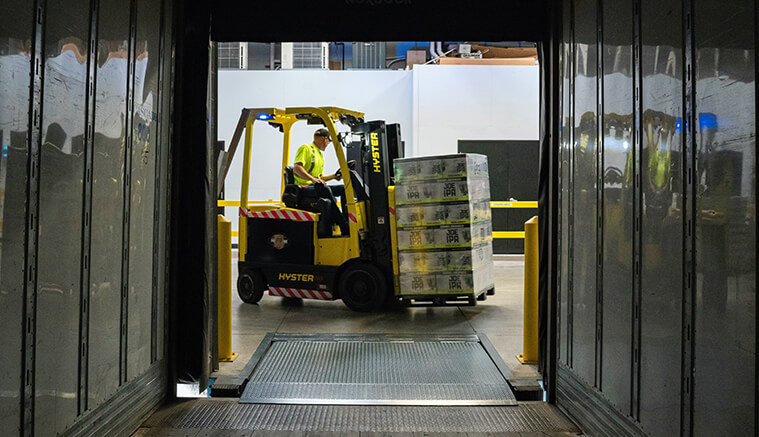SO YOU DON’T HAVE TO WONDER “WHAT IF”
Workers’ compensation insurance for self-employed workers and small businesses.
helping to protect your employees will
help protect you
Call now to speak to a licensed agent
Call now:
(888) 633-5229
Home >> Employer Services >> Workers' Compensation

All business insurance products are offered by INSURICA. INSURICA is among the 50 largest insurance brokers in the United States and is currently the 24th largest privately-held independent agency in the country. INSURICA and Woligo are both part of the Cameron Group of companies.
A buffer to catch your employees & your business
If one of your workers is injured while doing their job, the medical bills, lost wages, and legal fees you may be on the hook for quickly add up. Even self-employed individuals who work with subcontractors can be held liable for workplace injuries in some states, so take the precautions you can now.
Call now:
(888) 633-5229
PROTECT YOURSELF & YOUR BUSINESS
FOR ON-THE-JOB INJURIES
TAKE THE PRECAUTIONS YOU NEED
COMMON QUESTIONS ABOUT WORKERS’ COMPENSATION INSURANCE
REQUEST A QUOTE >HOW TO MANAGE YOUR RISK
Accidents happen. That’s just a part of life. But there are steps you can take to manage your risk and ensure a safe work environment for your employees.
Step 1: Carefully vet every applicant
It’s essential to properly vet all prospective employees to make sure they can take on the job’s responsibilities in a safe manner to avoid future workplace accidents.
You can give job applicants tests measuring an applicant’s ability to perform job-related tasks or physical fitness tests (tests measuring the performance of running, lifting, etc.) before any job offer is made.
But there are conditions regarding what the employer can ask, what type of exam can be performed, and when an examination can occur. Most of the rules about pre-employment physical exams are covered under the:
Americans with Disabilities Act (ADA).
Step 2: A safety policy is a must
Having a written safety policy ensures everyone is informed of company policies and protocols. A copy of the policy should be given to all new hires and remain easily accessible to everyone at your company.
Step 3: Consider a drug policy
As an employer, you have the right to drug test your employees or potential employees. Making sure they are working while not under the influence of drugs can prevent serious injuries and accidents from occurring.
Since there is no comprehensive federal law regulating drug testing in the private sector, you should check what the laws are in your state before implementing any kind of drug policy.
REQUEST A QUOTE >Step 4: Educate workers
In addition to establishing company policies and handing out materials, you should ensure your employees are adequately educated and informed of all policies. Education for employees should begin as soon as they are hired and be continued throughout the duration of their employment.
Step 5: Provide frequent breaks
Frequent breaks refresh the mind and body. They can also help reduce the likelihood of workplace accidents arising from repetitive motion and mental fatigue.
Step 6: Avoid overtime
Working in jobs with overtime schedules was associated with a 61% higher injury hazard rate compared to jobs without overtime.
Step 7: Remain adequately staffed
If you’re short-staffed, employees could be pulled in too many directions or be asked to take on a task they don’t know how to perform correctly. If you do need an employee to take on additional responsibilities, make sure they are properly trained before doing so. Even if it takes a little extra time or cuts into profit, it’s better than the employee becoming injured and you becoming even more short-staffed.
Step 8: Seek legal assistance
When in doubt, consult with a licensed attorney specializing in labor and workplace issues in your state.
WHERE CAN I GET WORKERS COMPENSATION INSURANCE?
You can get workers compensation through Woligo (888) 633-5229 and selecting option 2 or by filling out the form here so an expert insurance agent can call you back at a time that is convenient for you.
AM I LEGALLY REQUIRED TO HAVE WORKERS COMPENSATION INSURANCE?
Every state in the United States (except Texas) requires employers to carry workers’ compensation coverage. But the level and type of coverage are different for each state.
Protect your business & your employees
Work. Life. Go.Woligo
Call now:
(888) 633-5229or
GET A QUOTE >
PAYING FOR WORKERS’ COMPENSATION INSURANCE
HOW MUCH DOES WORKERS’ COMP INSURANCE COST?
The cost of workers’ comp insurance depends on your business’ unique needs and circumstances. Your insurance should cover your specific risks — nothing more and nothing less. Your premium will be calculated based on:
- Your industry
- Type of work you and employees do
- Claims history
- Number of employees
- Employee salaries and wages
One of the biggest factors is the type of activities workers will perform while on the clock. The National Council of Compensation defines workers’ compensation class codes in order to categorize how much coverage certain types of jobs require based on their risk.
For example, a healthcare worker is at higher risk of a work-related injury or illness than an attorney. You’ll need to request a quote in order to budget your workers’ comp premium.
WHO IS RESPONSIBLE FOR PAYING THE PREMIUMS FOR WORKERS COMP?
Workers’ compensation insurance is a cost of doing business and is solely the responsibility of the employer.
HOW IS WORKERS COMPENSATION INSURANCE CALCULATED?
The cost of workers compensation is calculated depending on a number of factors. One of the biggest factors is the type of activities workers will perform while on the clock.
HOW CAN I GET A QUOTE FOR WORKERS COMPENSATION INSURANCE?
You can get a quote for workers compensation insurance through Woligo by calling (888) 633-5229 and speaking with a licensed agent right now. Or, you can request that a licensed agent give you a call back at a time convenient for you.
BENEFITS OF WORKERS’ COMPENSATION INSURANCE
REQUEST A QUOTE >WORKERS COMPENSATION INSURANCE IS AN INVESTMENT
Small business owners need to think of workers compensation insurance more as an investment in their business rather than an expense. When you invest in workers compensation insurance, you are investing in and protecting your business.
A workplace accident could quickly spiral into a business lawsuit. Workers compensation helps prevent that by making sure employees receive the medical care they need while also compensating them for a portion of their income if they have to take days off to recover.
It can also help boost employee morale when a company willingly comes to the aid of an injured employee and provides them with the resources they need to get better.
As a small business owner, investing in workers compensation insurance helps you comply with applicable laws and provides benefits to both you and your employees.
IT’S THE LAW
Every state in the United States (except Texas) requires employers to carry workers’ compensation coverage. Each state has its own workers’ comp agency that is responsible for implementing its program, so requirements differ across the country.
California requires that all employers and work situations, even those with just one employee, including corporate officers and directors, must carry coverage.
In Florida, the workers compensation program has more flexibility. For example, agricultural businesses are required to carry coverage if they have six or more regular employees and/or 12 or more seasonal employees who work for more than 30 days.
But one thing is the same, business owners who don’t purchase workers’ comp insurance when required could face severe penalties ranging from hefty fines to jail time. Thus, business owners need to check the laws of their state to make sure they are in compliance with all applicable laws.
WORKERS’ COMPENSATION INSURANCE FOR THE SELF-EMPLOYED
REQUEST A QUOTE >WORKERS’ COMPENSATION FOR INDEPENDENT WORKERS
Crossing your fingers and hoping your employees never get injured while on the clock isn’t a valid insurance policy. Accidents happen, and, in some industries, they could be often. You can create the safest work environment possible, but there are still some things that are out of your control. Self-insured workers’ compensation insurance could help protect you, your employees, and any clients with whom you work.
WHAT WORKER’S COMPENSATION FOR THE SELF-EMPLOYED IS ALL ABOUT
Workers’ compensation is meant to help protect you and your employees. If your employees are injured or ill because of the work they are doing for your business, workers’ comp is designed to help cover the injured party’s medical care, disability benefits, and any lost wages from being away from work.
If that injured employee or their family sues you (the owner of the business), your workers’ compensation insurance may help cover your legal fees. Even if the workplace accident results in a fatality, self-employed workers’ compensation insurance may help cover the loss of life, including funeral costs and death benefits to the employee’s beneficiaries. None of us like to think about the possibility of a tragedy, but the truth is that being prepared helps remove stresses if the worst-case-scenario were to unfold.
WHEN DO SELF-EMPLOYED OR INDEPENDENT CONTRACTORS NEED WORKERS’ COMP?
Independent contractors and self-employed workers need worker’s comp insurance when the state in which they do business says they need workers’ comp insurance. Most states require workers’ comp for small businesses, but what is considered a “small business” varies. It typically depends on the number of employees you have (i.e., after three employees, workers’ comp is required by law), but it can also depend on what the business is registered as, such as a sole proprietorship or LLC.
You’ll have to check with your state’s local laws to see if you need workers’ comp as a self-employed individual.
Coverage for when accidents happen.
When you work for yourself – go Woligo.
Call now:
(888) 633-5229or
GET A QUOTE >
HOW WORKERS’ COMPENSATION COVERAGE WORKS
REQUEST A QUOTE >WHAT DOES WORKERS’ COMP COVER?
Workers’ compensation helps employees injured on the job through their recovery so they can get back to work and on with their lives as soon as possible. The insurance typically covers medical bills of the injured employee and their lost wages they miss out on while they recover.
Your workers’ compensation policy may also include the following coverages:
- Treatment or rehabilitation
- Employee training for new roles if the employee is unable to return to their previous job
- Long-term disability benefits
- Death benefits
- And more
WHAT DOESN’T WORKERS COMPENSATION INSURANCE COVER?
Some workplace injuries fall outside the coverage of worker’s compensation, such as self-inflicted injuries, injuries that happen during the commission of a crime, if the employee violated company policy, or if the employee was not on the job when the injury occurred. Workers’ compensation also does not cover payments for pain and suffering or negligence.
WORKERS’ COMPENSATION CLAIMS
REQUEST A QUOTE >COMMON SMALL BUSINESS AND INDEPENDENT CONTRACTOR WORKERS COMP CLAIMS
There is a common misconception that only companies in “hazardous” industries need to invest in workers compensation insurance. While there might be industries that are more prone to injuries, such as construction or manufacturing. No company, industry, or employee is immune to the possibility of a workplace injury.
Some of the most common types of workers compensation claims include:
- Improper lifting techniques
- Repetitive stress injury
- Car accident while driving for a business purpose
- Slips, trips, and falls
In fact, the United States Bureau of Labor Statistics reported that in 2019,
“27% of all nonfatal work injuries that required an employee to take days off of work were related to slips, trips, and falls”.
This type of injury could happen whether an employee works on a construction site or works behind a desk all day.
WHAT IF I DON’T HAVE ANY EMPLOYEES? DO I STILL NEED WORKERS’ COMP?
If you are self-employed and don’t have employees, you may still need workers’ compensation insurance. For the most part, it depends on the state in which you work. Some states require you to have workers’ comp even for contractors or subcontractors. It’s best to check your local workers’ comp laws in order to know your specific requirements.
As an independent contractor, you may work with clients that require you to have your own workers’ comp policy. Companies are in their rights to require that you, an independent contractor, have workers’ comp, regardless of whether or not you have employees. This is a precaution companies often take to avoid any future claims.
Contact one of our representatives today to get a quote and start the process of getting workers’ compensation insurance for your self-owned business.
REQUEST A QUOTE >“In 2019, 1,270 U.S. workers died in work-related crashes involving motor vehicles (24% of all deaths).”
IF MY EMPLOYEE IS INJURED, WOULDN’T THEIR HEALTH INSURANCE COVER COSTS?
A health insurance policy may exclude coverage when workers’ compensation can cover the injury or illness. Workers compensation insurance can also provide an injured employee with a portion of their lost income if they miss work because of a qualifying event, which health insurance does not.
WHAT IS THE FIRST THING I SHOULD DO IF AN EMPLOYEE GETS HURT ON THE JOB?
If an employee becomes injured on the job, your priority should be making sure they are immediately moved out of danger’s way and given the appropriate medical care.
Some minor injuries might only require a first aid kit, while more serious injuries might require you to call 911. Just remember, failing to seek medical assistance for an injured employee could easily result in a lawsuit.
MY INJURED EMPLOYEE HAS RECEIVED THE MEDICAL CARE THEY NEED. NOW WHAT?
You will need to get a statement from the injured employee as soon as possible. There are stringent reporting guidelines that must be followed when reporting workers compensation claims. Make sure you know what is required by your state and insurance carrier and contact your insurance agent as soon as an injury occurs to make sure you follow all of the appropriate steps.
HOW LONG DOES AN EMPLOYEE HAVE TO REPORT AN INJURY?
Since each state has its own workers’ comp agency responsible for implementing its program, reporting requirements vary across the country.
HOW LONG DO WORKERS COMPENSATION BENEFITS LAST?
Again, this is another component of workers compensation insurance that will vary from state to state. It can also depend on the type of injury or disability an employee is diagnosed with, such as temporary disability, permanent disability, or full or partial disability.
WHAT SHOULD I DO IF I THINK AN EMPLOYEE’S WORKPLACE ACCIDENT REPORT IS FRAUDULENT?
If you think an employee’s workplace accident claim is fraudulent, you should notify your workers’ comp claims administrator immediately. Tell them all the facts you know, any witnesses you may be aware of, and the people they should talk to.
WHAT ARE SOME EXAMPLES OF FRAUDULENT WORKPLACE ACCIDENT REPORTS AND CLAIMS MADE BY EMPLOYEES?
Examples of fraudulent workplace accident reports include falsely claiming an injury, lying about the circumstances when the injury was sustained, or “double-dipping” by collecting workers’ compensation and Social Security disability benefits at the same time.
REQUEST A QUOTE >




